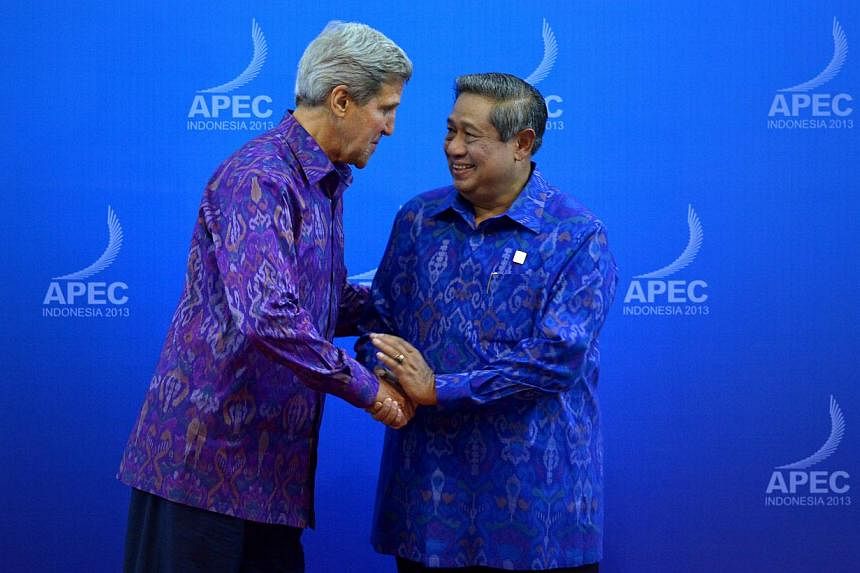JAKARTA - Indonesian observers on Thursday welcomed United States President Barack Obama's remarks on a shift in strategy when it comes to combating terrorism, but were mixed about other points of his foreign policy message.
Mr Achmad Sukarsono, associate fellow at The Habibie Centre think-tank, told The Straits Times that aid in the form of funding to help affected countries fight extremism was welcome and would be better accepted in Indonesia and among Muslim communities worldwide.
"Physical US presence tends to be divisive and triggers suspicion that America is warring on Muslims," he said.
In his commencement speech at the United States Military Academy on Wednesday, Mr Obama called on Congress to back a new Counter-Terrorism Partnerships Fund of up to US$5 billion (S$6.5 billion) to work with countries in the Middle East and Africa in battling terror, which would be more effective than prolonged military intervention.
A number of Indonesian analysts have long argued that the US invasion of Afghanistan and Iraq after the Sept 11, 2001 terrorist attacks on America and the continued American presence in these countries have not only bred a new generation of radicals there, but also radicalised many others around the world, including in Indonesia.
Of particular concern is the ongoing civil war in Syria, which now dominates hardline discourse in Indonesia and is used by radical groups to recruit new followers.
Security officials here estimate over 100 Southeast Asian radicals are fighting and picking up skills in areas like bombmaking that they may put to use when they return. Thus, US efforts to support Syria's neighbours in confronting terrorists working across the country's borders, and to push for a political resolution to the crisis, will likely be welcome.
But Mr Achmad highlighted one concern about greater aid to affected countries.
Foreign funding tends to attract rivalry and jealousy among security forces within a country, he said, citing the example of the Indonesian counter-terror strike force Densus 88.
The unit, set up in the wake of the 2002 Bali bombings that killed 202 people, has been getting funding from the US and other countries since its formation in 2003 and has had successes in breaking the backbone of terrorism in Indonesia, but continues to face tension from other security agencies and police units when coordinating information and action, he added.
In his speech, Mr Obama also spoke about America having to lead on the world stage.
"Regional aggression that goes unchecked - in southern Ukraine, the South China Sea, or anywhere else in the world - will ultimately impact our allies, and could draw in our military," he added.
Mr Meidyatama Suryodiningrat, editor-in-chief of The Jakarta Post, told The Straits Times it was encouraging that Mr Obama "underlines US commitment to higher values where isolationism is not an option. However the unilateral and pick-and-choose way which was inferred can be worrying."
Mr Meidyatama added: "While it may also be necessary to send a firm message, the symbolism of describing developments in the South China Sea as an act of "regional aggression that goes unchecked" and likening to events to southern Ukraine, only hots up and divides this region further at a time when many in Southeast Asia are hoping for a cooling of tensions."
And Mr Obama's comments on US allies, he said, further begged this question: "As an ally the US would definitely defend the security of Japan, but would it do the same if another country, but not an historic ally, was attacked?"

